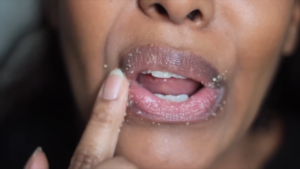Sleepless Nights, Scary Faces: Revealing the Dangerous Impact of Sleep Deprivation on Your Skin
Sleep is a basic human need that is essential for our overall physical and mental health. However, in this fast-paced modern world, many people suffer from lack of sleep, whether due to work demands, stress, or poor lifestyle habits. Not only does a lack of sleep negatively impact our mood, concentration, and cardiovascular health, it can also take a toll on our skin.
How Does Lack of Sleep Affect the Skin?
When we sleep, our body goes through a series of repair and recovery processes. The skin, our body’s largest organ, also undergoes significant renewal and repair during sleep. Lack of sleep can disrupt this process, causing various skin problems.
- Decreased Collagen and Elastin Production
Adequate sleep is essential for the production of collagen and elastin, proteins that provide structure and elasticity to the skin. Lack of sleep can reduce the production of these proteins, causing skin to sag, wrinkle and lose its firmness.
- Increased Inflammation
Lack of sleep triggers the release of stress hormones such as cortisol, which can increase inflammation throughout the body, including the skin. Chronic inflammation can cause various skin problems, such as acne, eczema, and psoriasis.
- Skin Barrier Disorders
The skin has a protective barrier that protects it from harmful environmental factors. Lack of sleep can damage this barrier, making skin more susceptible to damage from sun, pollution, and other irritants.
- Decreased Hydration
Getting enough sleep helps maintain skin hydration. Lack of sleep can cause dehydration, making skin look dull, dry and scaly.
- Dark Circles and Eye Bags
Lack of sleep can cause the blood vessels around the eyes to dilate, leading to dark circles and eye bags. It can also make the skin around the eyes look pale and tired.
- Delayed Wound Healing
Adequate sleep is very important for wound healing. Lack of sleep can slow the healing process, making wounds more susceptible to infection and scarring.
Long Term Impact of Lack of Sleep on Skin
The impact of lack of sleep on the skin is not only temporary. Chronic sleep deprivation can cause significant skin damage, including:
- Premature aging
- Wrinkles and fine lines
- Skin sags and loses firmness
- Acne and other skin problems
- Permanent dark circles and eye bags
How to Deal with Lack of Sleep and Protect Your Skin
Preventing and managing sleep deprivation is critical to your overall skin health. Here are some tips to improve your sleep quality:
- Set a regular sleep schedule and stick to it, even on weekends.
- Create a comfortable and dark sleeping environment.
- Avoid caffeine and alcohol before bed.
- Create a relaxing bedtime routine, such as reading or taking a warm bath.
- Avoid using electronic devices at least one hour before bed.
If you have trouble sleeping, talk to your doctor about possible causes and treatment options.
Conclusion
Lack of sleep has a significant negative impact on our skin. This can cause various skin problems, from acne to premature aging. By prioritizing getting enough sleep and implementing the tips mentioned above, you can protect your skin from the harmful effects of sleep deprivation and maintain its health and radiant appearance. Remember, good sleep is an investment in healthy, glowing skin.








